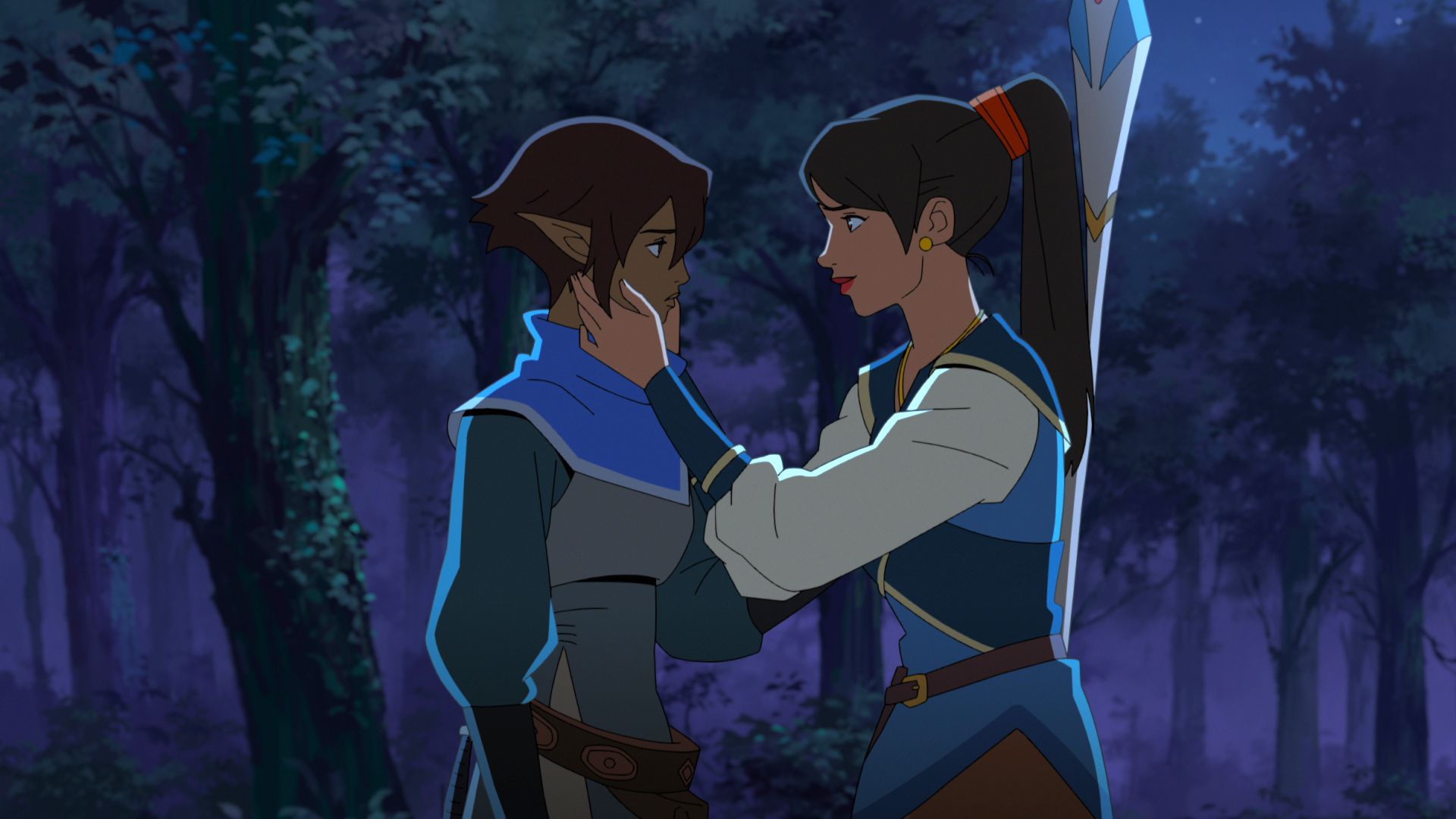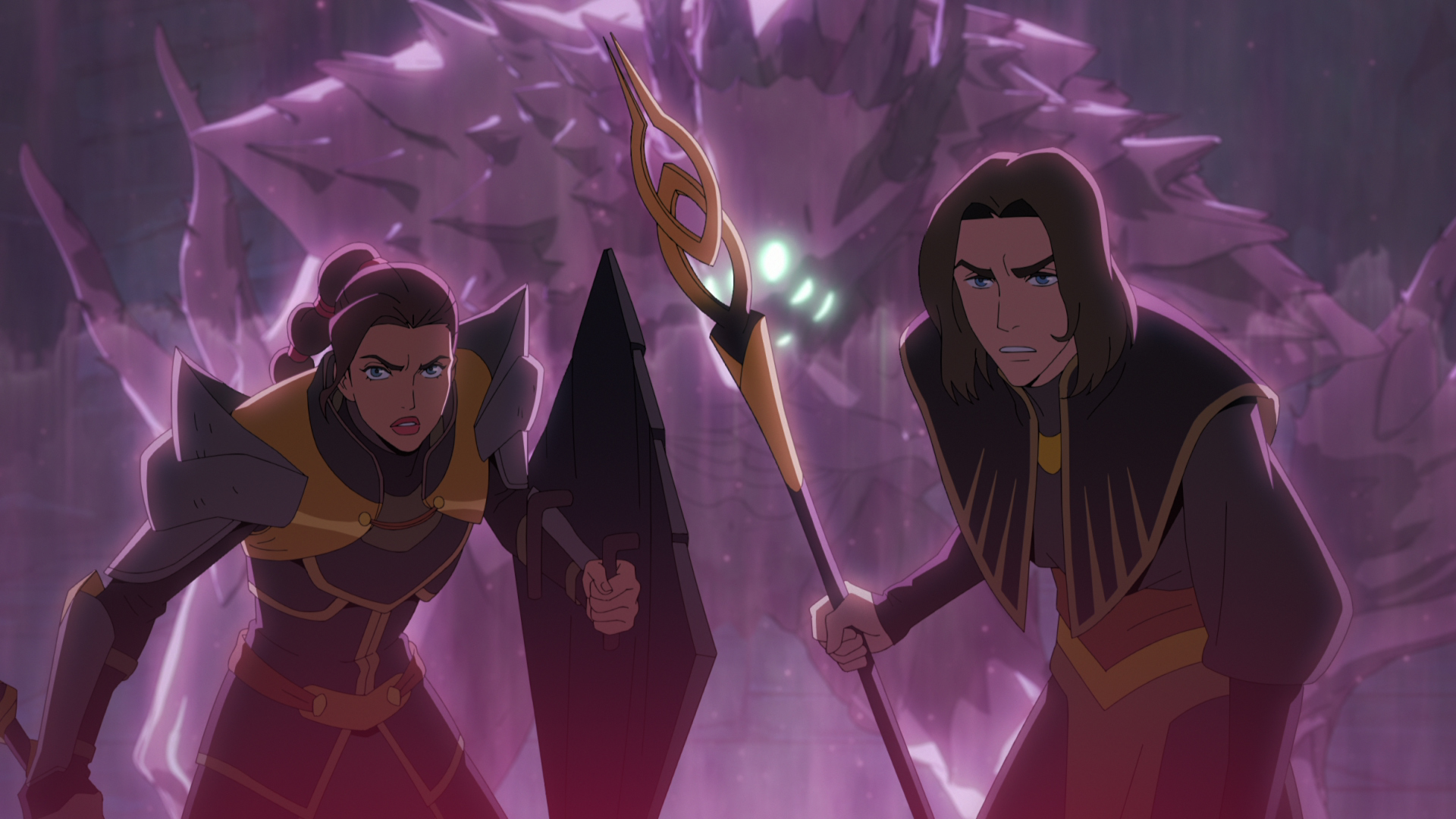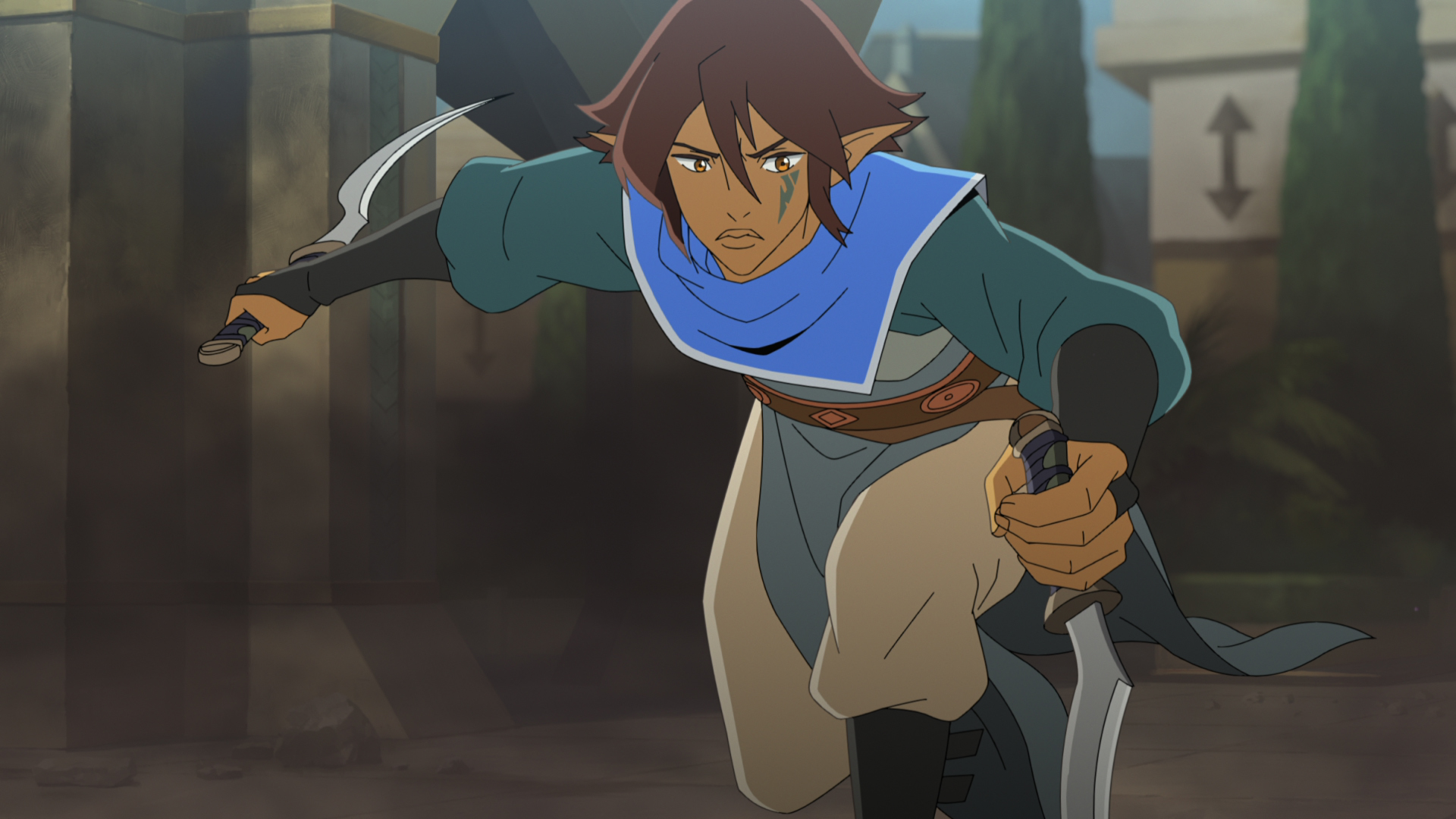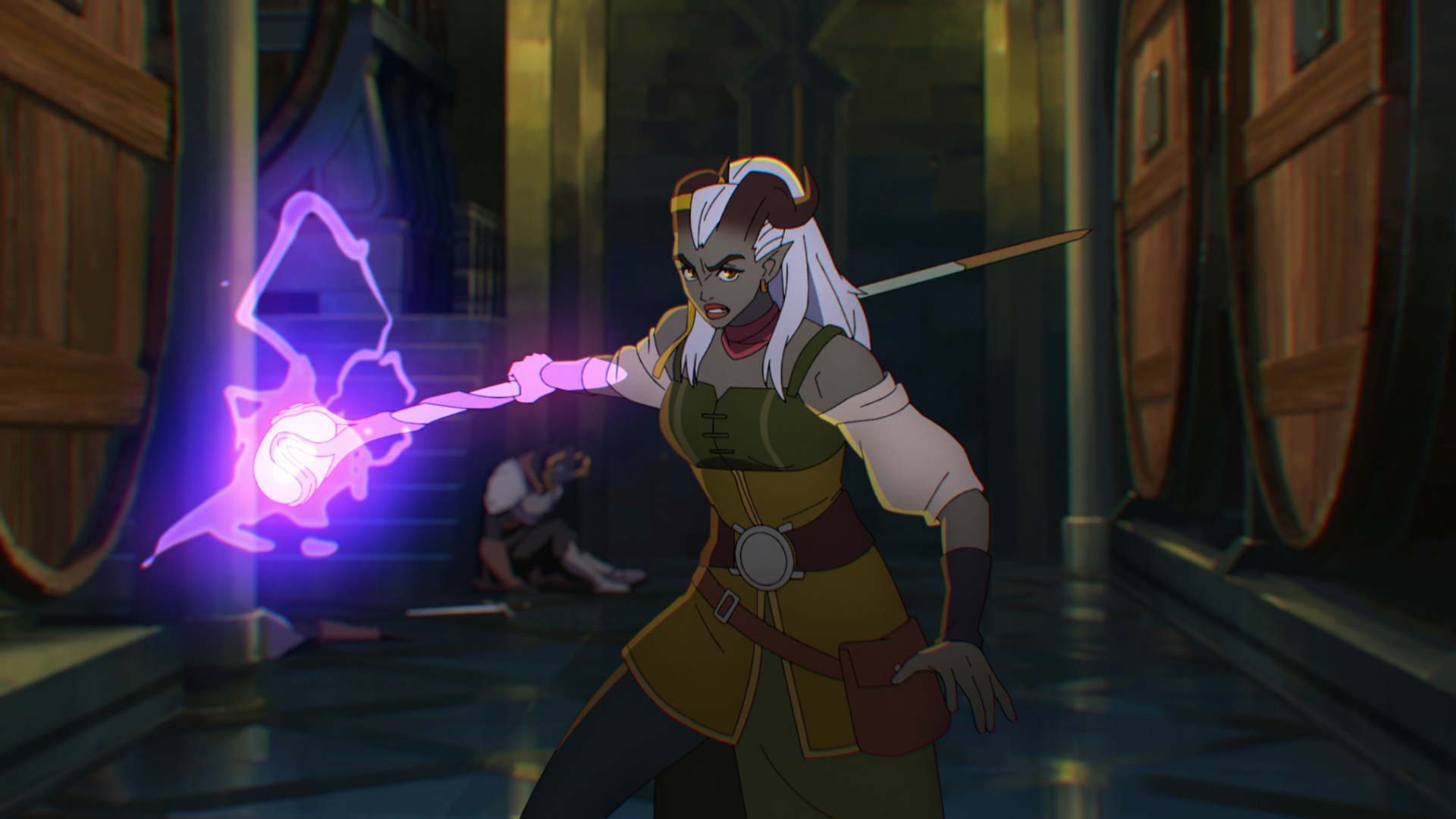Dragon Age: Absolution is a missable spinoff that crams its cast into a too tight clock
"We have Dragon Age at home." The Dragon Age at home:
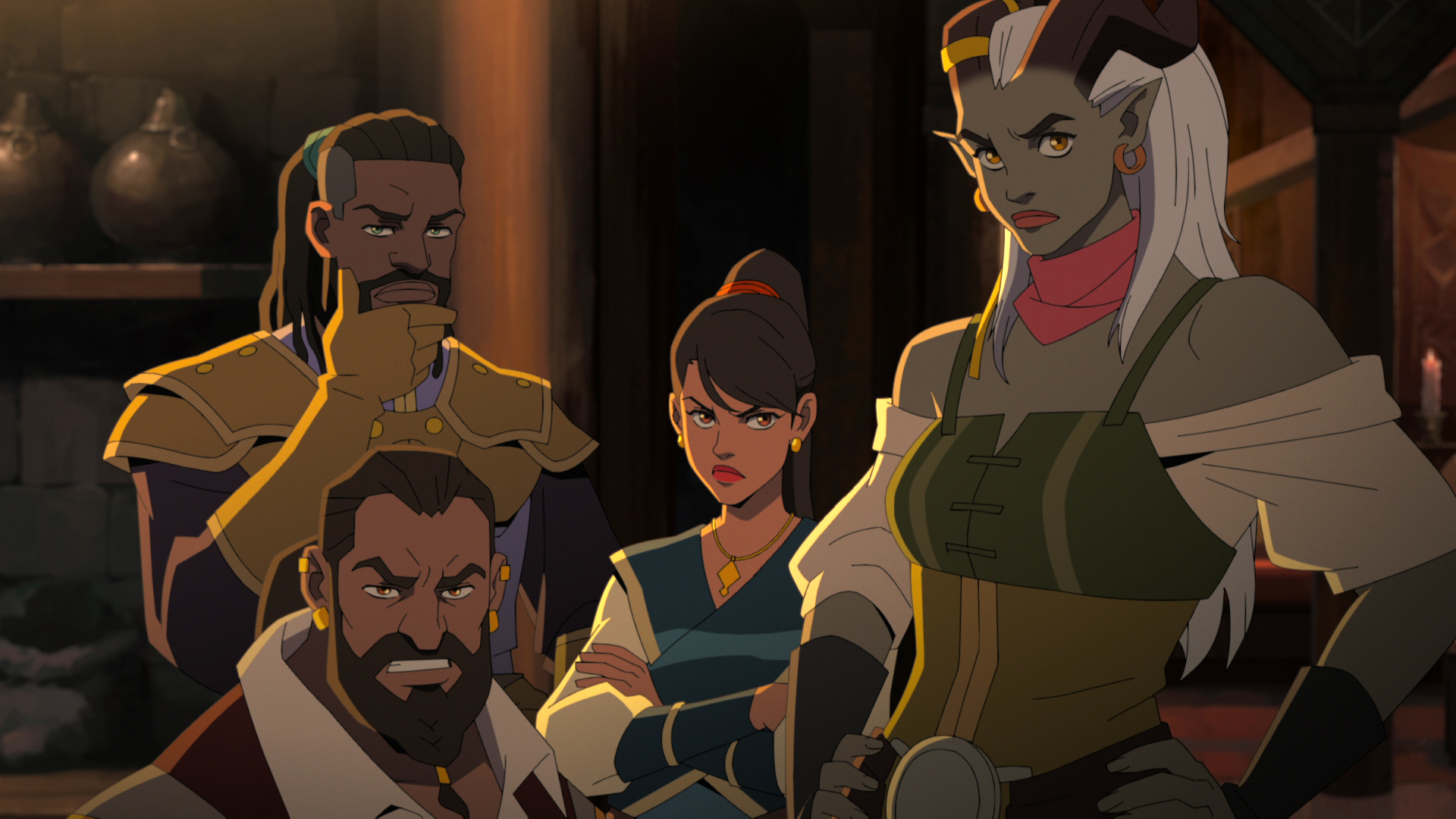
Keep up to date with the most important stories and the best deals, as picked by the PC Gamer team.
You are now subscribed
Your newsletter sign-up was successful
Want to add more newsletters?

Every Friday
GamesRadar+
Your weekly update on everything you could ever want to know about the games you already love, games we know you're going to love in the near future, and tales from the communities that surround them.

Every Thursday
GTA 6 O'clock
Our special GTA 6 newsletter, with breaking news, insider info, and rumor analysis from the award-winning GTA 6 O'clock experts.

Every Friday
Knowledge
From the creators of Edge: A weekly videogame industry newsletter with analysis from expert writers, guidance from professionals, and insight into what's on the horizon.

Every Thursday
The Setup
Hardware nerds unite, sign up to our free tech newsletter for a weekly digest of the hottest new tech, the latest gadgets on the test bench, and much more.

Every Wednesday
Switch 2 Spotlight
Sign up to our new Switch 2 newsletter, where we bring you the latest talking points on Nintendo's new console each week, bring you up to date on the news, and recommend what games to play.

Every Saturday
The Watchlist
Subscribe for a weekly digest of the movie and TV news that matters, direct to your inbox. From first-look trailers, interviews, reviews and explainers, we've got you covered.

Once a month
SFX
Get sneak previews, exclusive competitions and details of special events each month!
My greatest fear about Netflix's Dragon Age: Absolution was that it might spoil the grand debut of Dragon Age: Dreadwolf's new setting in Tevinter. When I finally get to play Deadwolf, I want to discover its surprises myself, not recognize them as reveals already wrung out for a Netflix spin-off. My fears were all for naught, because it turns out that Absolution is in such a damn rush to tell its own story that it doesn't have time to spoil anything else.
Dragon Age: Absolution revolves around a cobbled together group of thieves hired by the Inquisition—savor your 10 second Cassandra and background Leliana cameo here because it's the only one you're getting—to steal a magical artifact called the Circulum Infinitus. It's being held by the Tevinter Chantry and a magister who's dead set on using it. The Circulum Infinitus is powered by blood magic, you see, which is enough of a reason to send these otherwise disposable characters on a heist to grab it.
In case you aren't picking up the vibe, Absolution is absolutely not an approachable entry point to Dragon Age, no matter the vague noises to the contrary BioWare or Netflix have made.
In the first few minutes we're introduced to our rogue elf (in the daggers way and the 'was formerly a Tevinter slave' way) protagonist Miriam, who proves she's a cutthroat badass by sabotaging her own recruited goons as a distraction for a heist. One minute after that, we meet the boss of her current crew who has beef with her methods.
Less than a minute after that is the arrival of her ex-girlfriend Sapphira, who broke up with her to go join the Inquisition. They obviously also have beef. We meet "the rest of the team," have a disagreement and then heart-to-heart because Hira deceived Miri about the target of their mission for *checks notes* a few hours, tops. We get 60 seconds of literal voice-over lore dump about Tevinter culture during the montage journey to their destination, the city of Nessum.
The runtime so far is 11 minutes.
Friends, I appreciate a good "in medias res," but this feels like I accidentally walked into the first episode of a second season. You know that déjà not-vu phenomenon of realizing that everyone is subtly recapping events you're meant to have already seen? Except this is it. This is episode one. I feel totally in the deep end despite knowing my Dragon Age. Probably too much Dragon Age.
Keep up to date with the most important stories and the best deals, as picked by the PC Gamer team.
And I know why it's happening.
We've met six characters. There are still two main plot-central characters that we won't meet until episode two. The total runtime of the season is 138 minutes. (Netflix quotes them as 30 minute episodes but they clock in at 23 apiece.) Dragon Age: Absolution just doesn't have enough time for its entire ensemble cast. It barely has enough time to string along its central plot, let alone three romantic relationships and a handful of flashbacks in less time than Robert Pattinson spent on screen as Batman this year.
What happens in Tevinter
Here starts the spoiler-lite portion. You've been warned.
Dragon Age is a series primarily driven by its emotionally fraught characters, which is why the sheer number that Absolution tries to pack into its season is such a crime.
After its first episode of introductions, Dragon Age: Absolution revolves around a single night and day's heist at the Imperial Divine's vacation palace in Nessum. The young magister who's determined to use the Circulum to bring someone back to life is also, of course, Miri's former master Rezaren. What unfolds is mostly a traditional heist plot: a distraction, a couple vault crackers, a fouled escape route, tripped defenses, an unlikely betrayal, an interrogation, and so on. Aside from the breakneck pace, it's enjoyable, classic smash and grab action.
Absolution takes to its role as a spinoff, peppering in references to Dragon Age: Inquisition with mentions of the Hinterlands, the Herald of Andraste, and name-dropping magister Amelia Pavus, who's presumably an ancestor of Dorian's. Hira eventually mentions a contact at The Hanged Man bar in Kirkwall, though no, it's not a Varric cameo, sorry. It makes time for some snappy battle choreography and colorful magic battles with rage and pride demons easily recognizable from many fights throughout the games.
But Dragon Age is a series primarily driven by its emotionally fraught characters, which is why the sheer number that Absolution tries to pack into its season is such a crime. Any one of them had the capacity to be a new fan favorite, but the pace reduces even the best of them to bullet points. Qwydion is a comic relief qunari, Lacklon and Roland together are (spoiler alert) what fandom will refer to as "grumpy x sunshine," and Fairbanks is your standard smooth-talking, lock-picking rogue who is, himself, a Dragon Age: Inquisition sidequest callback.
Absolution's later episodes do veer into the properly grim, morally gray Dragon Age storytelling that the games earned my loyalty with. The reveals about Miri's relationships with both Hira and Rezaren are, on paper, the harrowing—pun intended, nerds—stuff of powerful Dragon Age quest lines. And it doesn't shy away from getting blood on its heroes' hands. Forced to split time with the full cast though, those reveals, their emotional appeals, and all the monologues just don't get to build up enough inertia to really punch me in the gut.
I don't know a damn thing about Netflix's production pipeline, but it feels like Absolution was pitched with a great outline for a 12 episode animated season and then wound up getting cut in half. I've seen some ensemble cast miracles achieved with 12 episodes, but six? I won't say it can't be done, only that Absolution hasn't done it.
Come for the Codex entry
By the end, Absolution feels like a Dragon Age checklist: It has three romances, demon battles, two cameos, blood magic, bants, an irreverent qunari, a badass lady Knight Commander, racism against elves, and desperate mages turning to blood magic.
Dragon Age: Absolution's contribution to the series will likely be a series of trivia section bullet points in a handful of Dragon Age Fandom wiki pages.
Have you ever tried to make really, really vibrant cookie frosting by dripping in more and more food coloring until it loses all structural integrity, becomes grainy, and just tastes like dye? Absolution is that: a mealy Dragon Age slurry. I'll still eat it and say "thank you," because I have no pride when it comes to baked goods or BioWare, but this is far from the best batch.
Dragon Age: Absolution's contribution to the series will likely be a series of trivia section bullet points in a handful of Dragon Age Fandom wiki pages. It's a real shame. Not least because Dragon Age spinoffs have historically been great. There are several novels, lots of comics, and a short story collection that all range from pretty good to excellent.
Absolution itself won't really claim space in my long-term memory. What I care about most is what it might say about the game I've been waiting nearly a decade to play. Does its heist focus mean that the spirit of Project Joplin lives on in Dreadwolf? Does that very final reveal scene harken to a returning side-dish villain? What minutia did I miss that the lore scholars of the fandom will use to fuel their prediction engines for however many months remain until Dreadwolf arrives? Can I have Miriam's cool string dagger things?
Watch Absolution. Earn your right to play the likely Dragon Age: Dreadwolf sidequest that references its events and point at the screen saying "oh yeah, it's them." But after you do, go pick up a copy of the short story collection Tevinter Nights instead. It's a vastly better appetizer for Dreadwolf than Absolution is.

Lauren has been writing for PC Gamer since she went hunting for the cryptid Dark Souls fashion police in 2017. She joined the PCG staff in 2021, now serving as self-appointed chief cozy games and farmlife sim enjoyer. Her career originally began in game development and she remains fascinated by how games tick in the modding and speedrunning scenes. She likes long fantasy books, longer RPGs, can't stop playing co-op survival crafting games, and has spent a number of hours she refuses to count building houses in The Sims games for over 20 years.
